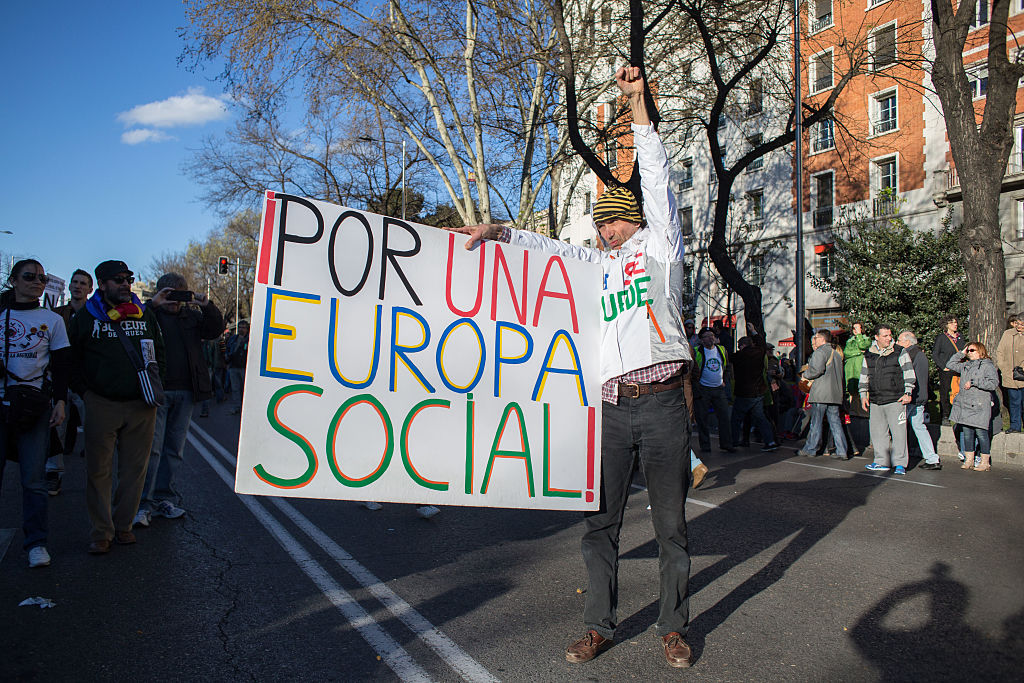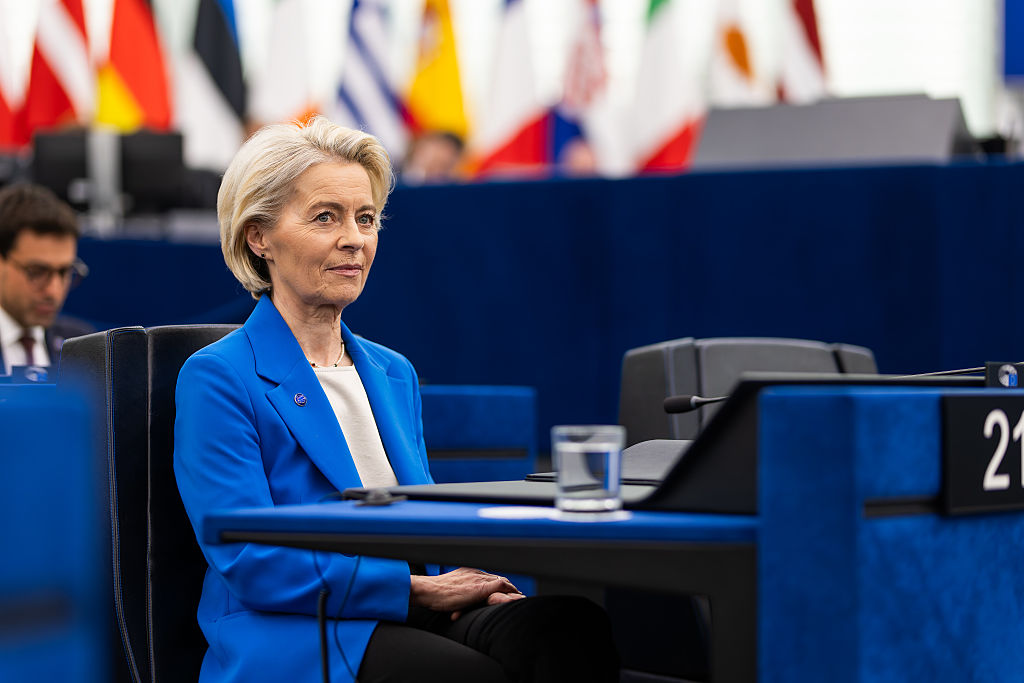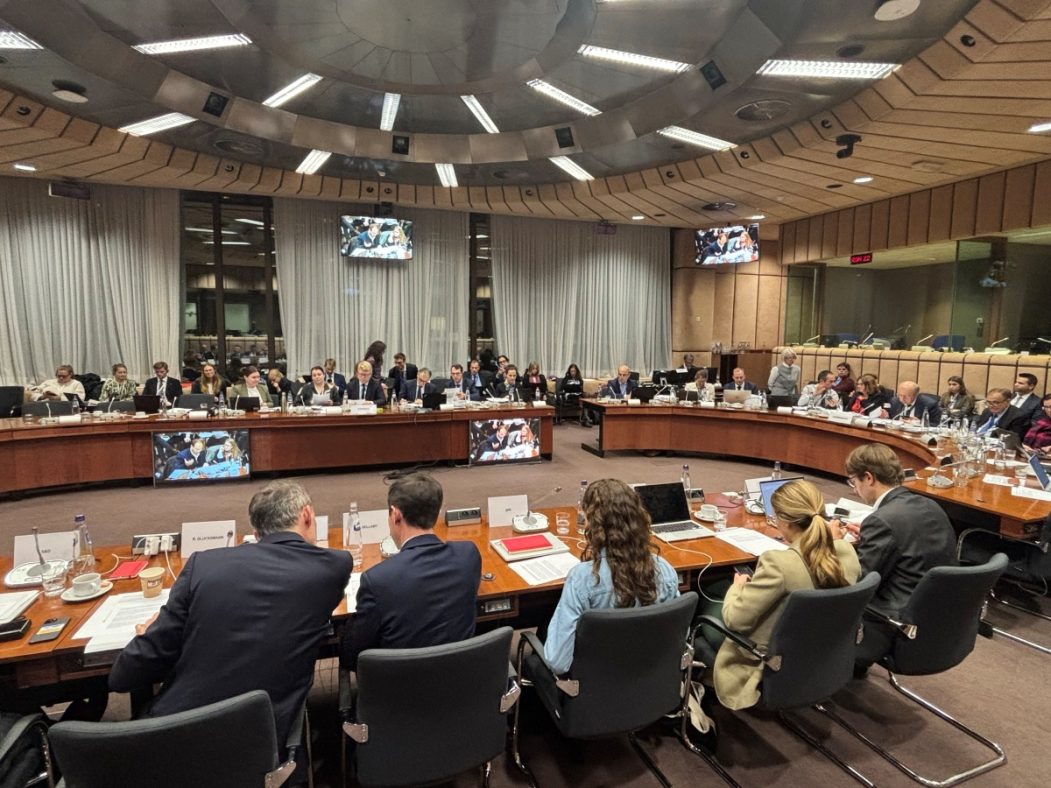The Brief – EDIP is a huge win for Europe, if MEPs would only let it through
With their default obstinacy, MEPs are torpedoing their greatest chance of securing real power

Hopes were high that today an agreement would be reached in Strasbourg over a new and ambitious defence regulation – EDIP. Unfortunately, those hopes have been dashed.
Though the proposed European Defence Industrial Programme is worth just €1.5 billion (not even the price of two Patriot missile launchers), what EDIP aims to achieve and what that means for Europe are nothing short of astonishing. Indeed, its implications would appear revolutionary to someone transplanted here from five years ago.
According to a Parliament note on the regulation, EDIP:
- “Establishes EU control over defence product design”;
- Includes Ukraine’s defence industry on the same terms as the EU, from the get-go;
- “Introduces the Structure for European Armament Programme (SEAP) to support long-term defence cooperation and procurement”. SEAP effectively forces groups of countries to apply for funds together, and for the outputs to be made to a set of harmonised standards;
- And “creates the first EU-wide Security of Supply regime, with a new Defence Security of Supply Board to coordinate responses to supply disruptions and ensure continuity during crises.”
Not only do these proposals significantly shift responsibility for defence to the shared, European level. They are also posited as the basis for all future EU defence expenditure. Forget the €1.5 billion price tag currently attached to EDIP; if it passes it will fundamentally change how the next seven-year EU budget is spent.
Defence is at the heart of sovereignty. Until now it has always been the prerogative of EU countries. Talk of a European Defence Community circulated in the decade after World War Two, but was firmly rejected by the French.
The latest move to integrate European defence is now being held back, not by France, but by the European Parliament. The Parliament is treating the closing negotiations over EDIP like just another policy file. It is playing the usual games of haggling and brinkmanship, trying to score any amendment it could pass off as a “win”, and proof of the institution’s relevance.
But with their obstinacy, MEPs are torpedoing Europe’s greatest chance of securing real influence over defence spending decisions.
Parliamentarians would do better to let EDIP pass. Bearing in mind it took a year and a half to reach a careful consensus, and consent, of 27 capitals to expose their defence industrial base to far more input from the European level. Their resistance risks derailing the whole programme.
Then again, perhaps we shouldn’t be surprised. After all, which country are the Parliament’s EDIP rapporteurs both from?
Roundup
EU underprepared – A Polling Europe survey found that 52% of participants are unconvinced in the continent’s military preparedness, while participants in favour of increased defence investment fell by 7%. The poll was conducted just a week after Russian drones invaded Polish airspace.
VDL keeps her cool – The president came under fire from MEPs on both the far left and the far right, facing two motions of censure in Strasbourg on Tuesday. But as centrists rallied to her cause, there was never any real danger for the Commission head.
Salis and Magyar saved – MEPs voted to protect the parliamentary immunity of Ilaria Salis and Péter Magyar, both of whom are sought by Hungarian prosecutors. The decision is likely to fuel Orbán’s narrative that the EU protects its allies while interfering in Hungary’s internal affairs.
Across Europe
German mayor stabbed – Iris Stalzer, newly-elected mayor of Herdecke, was stabbed near her home on Tuesday. “We fear for her life,” German Chancellor Friedrich Merz wrote on X.
Social media age restrictions – Danish Prime Minister Mette Frederiksen said she plans to enforce a ban on several social media platforms for users under the age of 15. Under the new rules, parents can grant their children under 13 access to social media platforms.
Puigdemont to challenge embezzlement charges – The self-exiled Catalan separatist leader and two of his former ministers appealed against the Spanish Supreme Court for upholding embezzlement charges against them after being charged for misusing around €1.6 million in public funds in 2018.










